News
On Boko Haram, As Tension Hightens
The Nigerian Army has challenged its Special Forces to prove that they have better training and tactics than terrorists by making the difference and positive impact in the ongoing counter-terrorism operations.
The Chief of Army of Staff, Lt.-Gen. Tukur Buratai, gave the charge in Maiduguri yesterday, while addressing the Armed Forces Special Forces and Army Strike Group deployed in the North-East.
“You are selected specially and deployed here in the North East. You are given special training and that is why you are called Special Forces.
“I am here to tell you that you have a great job to do and you must do it properly.
“You are deployed in the North-East to make a difference because of your special training. If there will be any challenge in terms of capacity, I believe you will fill that gap and you have all it takes to do that.
“If you apply the training that you are given, we all have cause to be proud to belong the armed forces of our great country,’’ Buratai said.
He warned them against exhibiting cowardice, saying “we do not have time for the chicken-hearted, the cowards.
“You all must brace up and be brave. We have done the greatest job so far in the North-East; the greatest in terms of degrading the terrorists.
“We are better trained, better equipped. We know tactics better than them and what is remaining for us is to dominate everywhere and dominate our areas of responsibilities.
“We must dominate the whole of the North-East.’’
He added that “the terrorists must no longer be allowed the freedom to move about and commit heinous crime and escape.
“They must be dealt with squarely. We must say no to their vain and invalid threats.
“Henceforth, there should be no dull moment in our operations. There should be no gap, but make a difference,’’
Meanwhile, tension is rising among the top hierarchy of the Nigerian military as fears continue to spread of an imminent rebellion among the rank and file, our correspondent has learnt.
Our correspondents, who spoke to four senior officers, including a Major General, learnt that many of the soldiers, especially those at the war front, had been showing signs of agitation over the inability of the military high command to provide them with weapons and adequate welfare.
One of the officers said, “I can tell you without mincing words that many of us, officers, are afraid because the soldiers can revolt anytime from now. You will recall that some soldiers of the 21 Brigade in Sambisa Forest last year went on the rampage, revolting against their superiors.
“Such rebellion only happens when the officers lose the trust of their men. The soldiers have been complaining about lack of weapons and welfare but their demands are being ignored. Always remember that whenever there is an attack, if 40 soldiers are killed, only two officers will be affected. This is because the soldiers are the ones at the battlefront.
“If they feel they are being led to their death, they will rather revolt and save themselves rather than die. As it is, we are fearful of what may happen. We don’t want a Bangladeshi Rifle Revolt in Nigeria like it happened in 2009 in Bangladesh where soldiers killed 57 officers.”
A major general told one of our correspondents that apart from the lack of weapons, the military was losing the anti-insurgency war due to two principal reasons — strategy and lack of synergy among the service chiefs.
The source alleged that there was disunity among the service chiefs which was beginning to affect the fight against terror.
He added, “The Chief of Defence Staff, Gen. (Abayomi) Olonishakin, has no control over the service chiefs. He summons meetings and the service chiefs don’t come.
“The indiscipline has reached a level that the service chiefs now bypass the CDS and the Minister of Defence and write letters directly to the President. The service chiefs even attended Mr President’s campaign launch recently. This is not the military I (have) spent 33 years serving. You don’t break the chain of command.”
The senior military officer said the service chiefs had become lords unto themselves and were not open to alternative views.
He added, “On several occasions during our security meetings, if you bring up an alternative view, you become an easy target for those in power. These service chiefs have stayed for too long and are now bereft of new ideas.
“From the order we were given, Boko Haram is not supposed to occupy an inch of Nigeria’s territory. The strategy they decided to use was to spread our men thinly across the border so that we can boast that no territory is under Boko Haram.
“What we should have done is to allow Boko Haram have a particular territory which we can identify and then we would unite our men on one front and form a wall. We would then attack the insurgents head on. Our men are just being killed because they are thinly spread.”
Also, a colonel said the United States Africa Command had not been giving Nigeria the much needed Intelligence, Surveillance and Reconnaissance – ISR.
He added, “In the past, AFRICOM would provide us with intelligence and then the Nigerian Air Force would bomb terrorists’ strongholds.
“However, this arrangement seems not to be working anymore. What AFRICOM has been doing is to boost security in Niger Republic in order to prevent terrorists from getting their hands on uranium.
“It may seem they do not trust Nigeria with intelligence anymore.”
A peace, security and conflict Consultant, Group Capt. Sadeeq Shehu (retd.), said recently on Channels Television that the Nigerian forces were not given the required intelligence from the United States, the United Kingdom, France and other world powers.
He said, “One area in which we are lacking and which was very decisive in Colombia is having real and live intelligence. The US Command was able to show the Colombian forces exactly where insurgent were at any particular time. We don’t have this in Nigeria.
“When the President is going to meet our allies in other countries, I will suggest humbly that we talk to these allies – US, UK, France; they have the capacity to give us satellite imagery. So, instead of our troops fighting and waiting for Boko Haram to attack, they will be able to know, 24/7, where Boko Haram is. It makes it very easy.”
He advised the military to be honest with the government as regards its needs rather than pretending that all was well.
News
You Failed Nigerians, Falana Slams Power Minister
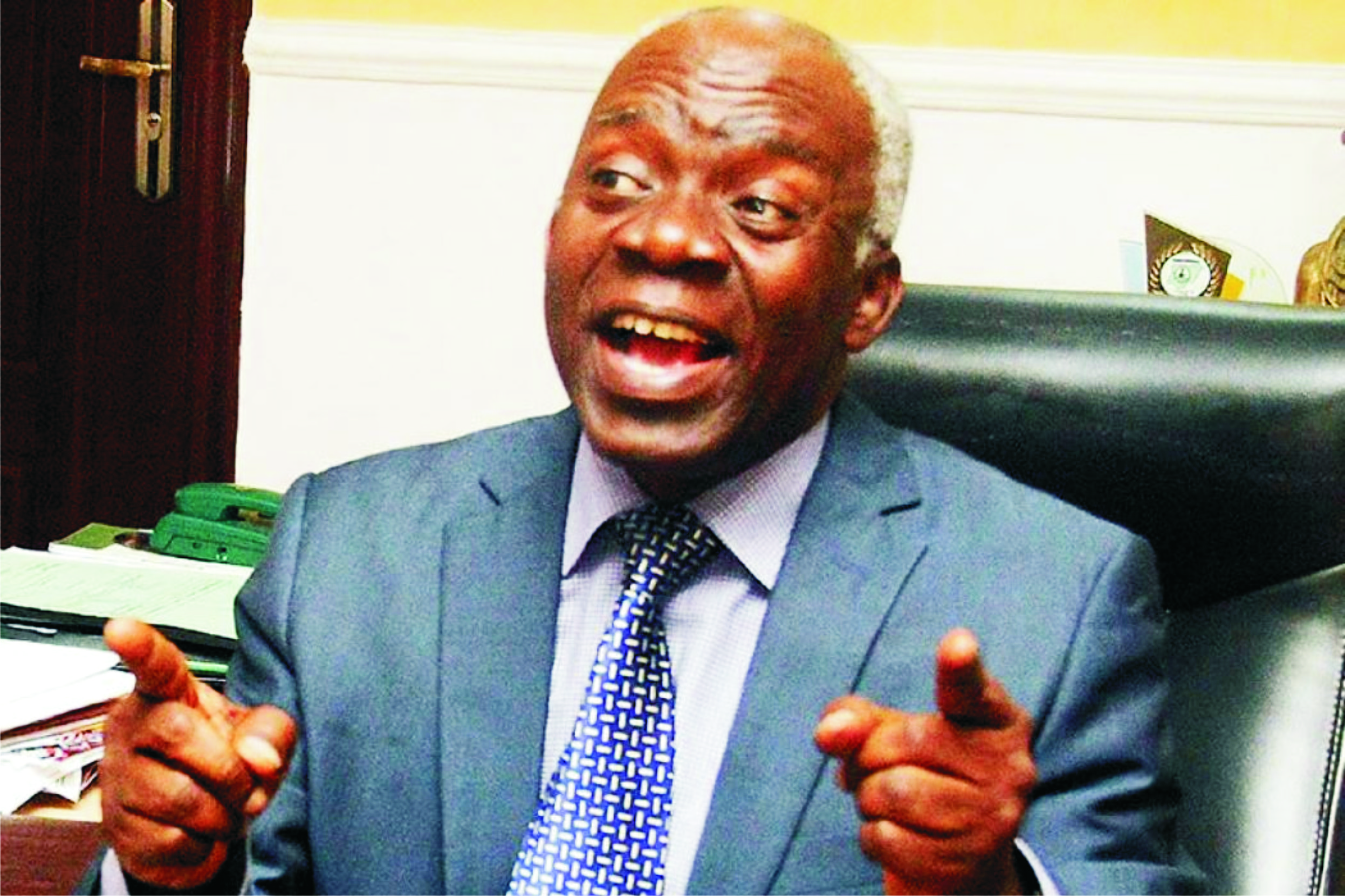
Human rights lawyer, Femi Falana, SAN, has passed a vote of ‘no confidence’ in the Federal Government, saying that the Minister of Power, Adebayo Adelabu, has failed Nigerians.
Falana was reacting to Adelabu’s appearance before the Senate to defend the increase in the electricity tariff and what Nigerians would pay on Monday.
The rights activists also claimed that the move is a policy imposed on the Nigerian government by the International Monetary Funds (IMF) and the World Bank.
Speaking on the Channels TV show on Monday night, Falana said, “The Minister of Power, Mr Adebayo Adelabu has failed to address the question of the illegality of the tariffs.
“Section 116 of the Electricity Act 2023 provides that before an increase can approved and announced, there has to be a public hearing conducted based on the request of the DISCOS to have an increase in the electricity tariffs. That was not done.
“Secondly, neither the minister nor the Nigeria Electricity Regulatory Commission has explained why the impunity that characterised the increase can be allowed.”
Falana also expressed worry over what he described as impunity on the part of the Federal Government and electricity regulatory commission.
““I have already given a notice to the commission because these guys are running Nigeria based on impunity and we can not continue like this. Whence a country claims to operate under the rule of law, all actions of the government, and all actions of individuals must comply with the provisions of relevant laws.
“Secondly, the increase was anchored on the directives of the commission that customers in Band A will have an uninterrupted electricity supply for at least 20 hours a day. That directive has been violated daily. So, on what basis can you justify the increase in the electricity tariffs”, Falana queried.
The human rights lawyer alleged that the Nigerian government is heeding an instruction given to her by the Bretton Wood institutions.
He alleged, “The Honourable Minister of Power is acting the script of the IMF and the World Bank.
“Those two agencies insisted and they continue to insist that the government of Nigeria must remove all subsidies. Fuel subsidy, electricity subsidy and what have you; all social services must be commercialised and priced beyond the reach of the majority of Nigerians.
“So, the government cannot afford to protect the interest of Nigerians where you are implementing the neoliberal policies of the Bretton Wood institutions.”
The Senior Advocate of Nigeria accused Western countries led by the United States of America of double standards.
According to him, they subsidize agriculture, energy, and fuel and offer grants and loans to indigent students while they advise the Nigerian government against doing the same for its citizens.
Following the outrage that greeted the announcement of the tariff increase, Adelabu explained that the action would not affect everyone using electricity as only Band A customers who get about 20 hours of electricity are affected by the hike.
Falana, however, insisted that neither the minister nor the National Electricity Regulatory Commission (NERC) has justified the tariff increase.
The senior lawyer said that Nigerian law gives no room for discrimination against customers by grading them in different bands.
He insisted that the government cannot ask Nigerians to pay differently for the same product even when what has been consistently served to them is darkness.
Following the outrage over the hike, Adelabu on Monday appeared at a one-day investigative hearing on the need to halt the increase in electricity tariff by eleven successor electricity distribution companies amid the biting economic situation in Nigeria.
However, Falana said that nothing will come out of the probe by the Senate.
He advised that the matter has to be taken to court so that the minister and the Attorney General of the Federation can defend the move.
News
1.4m UTME Candidates Scored Below 200 -JAMB
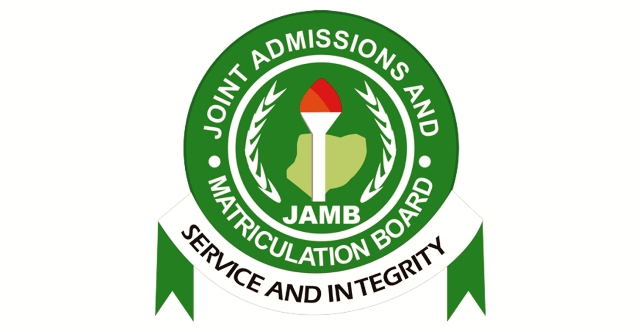
The Joint Admissions and Matriculation Board (JAMB) on Monday, released the results of the 2024 Unified Tertiary Matriculation Examination, showing that 1,402,490 candidates out of 1,842,464 failed to score 200 out of 400 marks.
The number of candidates who failed to score half of the possible marks represents 78 per cent of the candidates whose results were released by JAMB.
Giving a breakdown of the results of the 1,842,464 candidates released, the board’s Registrar, Prof. Ishaq Oloyede, noted that, “8,401 candidates scored 300 and above; 77,070 scored 250 and above; 439,974 scored 200 and above while 1,402,490 scored below 200.”
On naming the top scorers for the 2024 UTME, Oloyede said, “It is common knowledge that the Board has, at various times restated its unwillingness to publish the names of its best-performing candidates, as it considers its UTME as only a ranking examination on account of the other parameters that would constitute what would later be considered the minimum admissible score for candidates seeking admission to tertiary institutions.
“Similarly, because of the different variables adopted by respective institutions, it might be downright impossible to arrive at a single or all-encompassing set of parameters for generating a list of candidates with the highest admissible score as gaining admission remains the ultimate goal. Hence, it might be unrealistic or presumptive to say a particular candidate is the highest scorer given the fact that such a candidate may, in the final analysis, not even be admitted.
“However, owing to public demand and to avoid a repeat of the Mmesoma saga as well as provide a guide for those, who may want to award prizes to this set of high-performing candidates, the Board appeals to all concerned to always verify claims by candidates before offering such awards.”
Oloyede also noted that the results of 64,624 out of the 1,904,189, who sat the examination, were withheld by the board and would be subject to investigation.
He noted that though a total of 1,989,668 registered, a total of 80,810 candidates were absent.
“For the 2024 UTME, 1,989,668 candidates registered including those who registered at foreign centres. The Direct Entry registration is still ongoing.
“Out of a total of 1,989,668 registered candidates, 80,810 were absent. A total of 1,904,189 sat the UTME within the six days of the examination.
“The Board is today releasing the results of 1,842,464 candidates. 64,624 results are under investigation for verification, procedural investigation of candidates, Centre-based investigation and alleged examination misconduct”, he said.
Oloyede also said the Board, at the moment, conducts examination in nine foreign centres namely: Abidjan, Ivory Coast; Addis Ababa, Ethiopia; Buea, Cameroon; Cotonou, Republic of Benin; London, United Kingdom; Jeddah, Saudi Arabia; and Johannesburg, South Africa.
“The essence of this foreign component of the examination is to market our institutions to the outside world as well as ensuring that our universities reflect the universality of academic traditions, among others. The Board is, currently, fine-tuning arrangements for the conduct of the 2024 UTME in these foreign centres,” he explained.
News
Ex-CBN Director Admits Collecting $600,000 Bribe For Emefiele
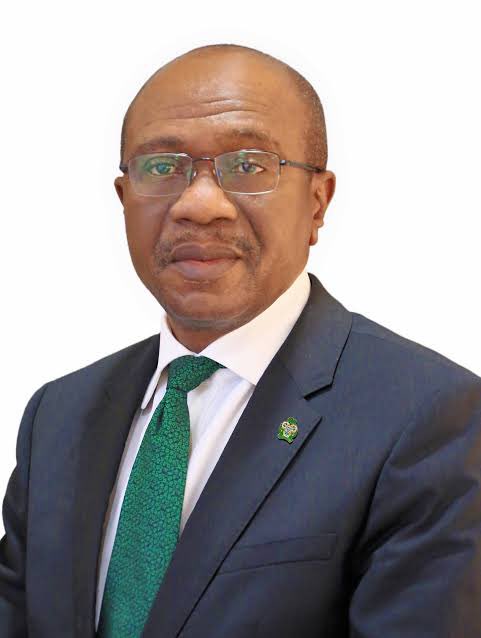
A former Director of Information Technology with the Central Bank of Nigeria, John Ayoh, has alleged that he collected on behalf of the former governor of the apex bank, Godwin Emefiele, a sum of $600,000 in two installments from contractors.
Ayoh, the second witness of the Economic and Financial Crimes Commission (EFCC), disclosed this on Monday while recounting instances where he facilitated the delivery of money to Emefiele, claiming it was for contract awards.
Under cross-examination at the Ikeja Special Offences Court in Lagos by the defence counsel, Olalekan Ojo (SAN), Ayoh admitted to facilitating the alleged bribery under pressure.
The embattled former governor of the apex bank is having many running legal battles both in Abuja and Lagos and is being tried by the EFCC at the Special Offences Court over alleged abuse of office and accepting gratification to the tune of $4.5 billion and N2.8bn.
He was arraigned on April 8, 2024, alongside his co-defendant, Henry Isioma-Omoile, on 26 counts bordering on abuse of office, accepting gratifications, corrupt demand, receiving property, and fraudulently obtaining and conferring corrupt advantage.
Emefiele’s defence, however, challenged the court’s jurisdiction over constitutional matters, urging the quashing of counts one to four and counts eight to 24 against him.
Ayoh, who was led in evidence by the EFCC prosecution counsel, Rotimi Oyedepo (SAN), said the first money he collected on Emefiele’s behalf was $400,000 which his assistant, John Adetola, came to collect at his house in Lekki, Lagos State.
He further told the court that the second bribe of $200,000 was collected at the headquarters of CBN, at the Island office.
He said the money was brought in an envelope, adding that when the delivery person, Victor, was on the bank’s premises, he contacted Emefiele, who insisted on receiving the package directly from Ayoh without involving third parties.
He said when he went to deliver the package, he saw many bank CEOs waiting to see the former apex bank governor.
When questioned if he had ever been involved in any criminal activity, he responded in the negative but admitted that he had facilitated the commission of crime unknowingly.
“I believe I did admit in my statement that I was forced to commit the crime. I don’t know the exact word I used in my statement, but I said we were all forced with tremendous pressure to bend the rules,” he said.
When asked if he opened the envelopes he collected on the two occasions and counted the money to confirm the amount, he was negative in his reply, adding that he did also write in his statement that the money was given to influence the award of contracts.
On whether the EFCC arrested him, the witness said he was invited on February 20, 2024, and returned home after he was granted bail.
Earlier, Emefiele asked the court to quash counts one to four and counts eight to 24 against him, as the court lacks the jurisdiction to try him.
Speaking through his counsel, Ojo, he said counts one to four were constitutional matters, which the court lacked the jurisdiction to determine.
In his argument, citing Sections 374 of the Administration of Criminal Justice Act and 386(2), the defence counsel told Justice Rahman Oshodi that Emefiele ought not to be arraigned before the court on constitutional grounds.
He, therefore, urged the court to resolve the objection on whether the court had the jurisdiction to try the case or not.
The second defendant’s counsel, Kazeem Gbadamosi (SAN), also relied on the submissions of Ojo.
The EFCC counsel, Oyedepo, however, objected, as he asked the court to disregard the decision of the Court of Appeal relied upon by Ojo, saying that the Court of Appeal could not set aside the decision of the Supreme Court on any matter.
Ruling on the submissions of the counsel, Justice Oshodi said he would give his decision on jurisdiction when he delivered judgment as he adjourned till May 3.
He also directed the EFCC to serve the defence proof of evidence on witness number six and his extrajudicial statement.
-
News1 day ago
NANS Threatens Nationwide Protest Over Fuel Scarcity
-
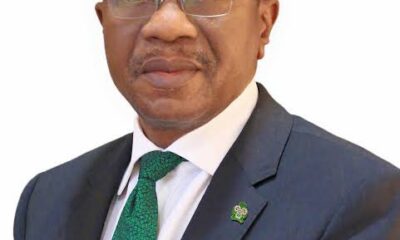
 News1 day ago
News1 day agoEx-CBN Director Admits Collecting $600,000 Bribe For Emefiele
-
Nation1 day ago
Ibom Developers Supports 160 Women with Skill Acquisition Training in Akwa Ibom
-

 News1 day ago
News1 day ago1.4m UTME Candidates Scored Below 200 -JAMB
-
News1 day ago
Gunmen Kidnap Four In Abuja
-
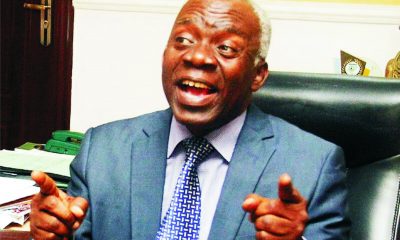
 News1 day ago
News1 day agoYou Failed Nigerians, Falana Slams Power Minister
-

 Nation1 day ago
Nation1 day agoIbom Developers Supports 160 Women with Skill Acquisition Training in Akwa Ibom
-
Niger Delta1 day ago
Fire razes 4 shops in Edo

